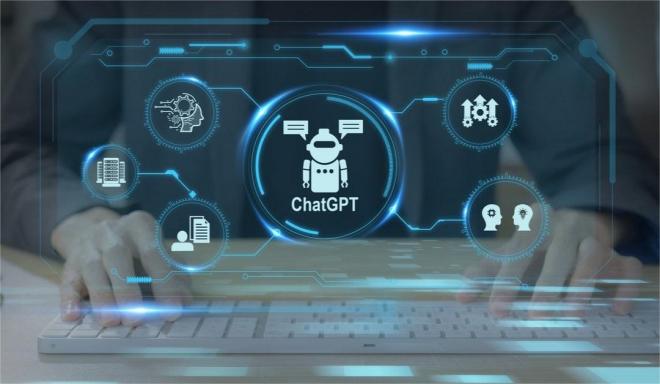Analysis of ChatGPT's supporting role in the military
The emergence of ChatGPT is a milestone event in the development path of general AI and represents a major technological breakthrough.
ChatGPT is a natural process of technology accumulation from quantitative to qualitative change, which is a "fused imitative innovation" of existing knowledge and a type of engineering practice for application needs. It can solve a lot of basic work, liberate human creativity, and improve the efficiency of creativity.
ChatGPT's potential for military-related applications is mainly reflected in the use of intelligent generation technology to assist in improving the efficiency of various professional fields, rather than replacing the work of experts in each field.

1. Intelligence Analysis
Using data analysis machine learning models have been shown to improve the efficiency of intelligence processing analysis by filtering large amounts of data and flagging important information, and allowing analysts to focus on deeper analysis. Language big models that rely on intelligent generation techniques can also improve productivity by helping to generate draft intelligence analyses, accurately translate foreign languages, and more. For open source intelligence in particular, linguistic big models with external search capabilities and expert-informed training data will enhance our collection and analysis capabilities. Intelligence collection and analysis capabilities can be greatly enhanced by training and developing these productivity tools for the needs and intelligence purposes of open source intelligence centers.
2. Combatant-assisted programming
Recently the U.S. Army has proposed programming personnel to be deployed to combat units, which places high demands on the quality of personnel in combat units, and ChatGPT embodies great advantages in the face of such cross-disciplinary technical requirements. Take Codex, the code generation tool integrated in ChatGPT, as an example. Codex is a descendant of GPT-3, and Codex is obtained by fine-tuning the GPT-3 base model using data collected from Github's 54,000,000 public code bins. As a large-scale pre-training model used by OpenAI to support Github Copilot, Codex is currently the most powerful pre-training model for programming languages. Although the programming power of Codex is still in its infancy, it should be of great help to programmers in improving real-time programming efficiency and shortening emergency response time.
3. Cognitive Warfare Field
The role of cognitive warfare in modern warfare is becoming more and more important, as the specific direction of disinformation or misinformation in social media can create our invisible allies within the enemy by stirring up public opinion and provoking emotions. While it is costly to stir up public opinion with a large "human army", generative models such as ChatGPT can easily create large-scale fake news, generating "simulated" text that resembles human language habits to make it look fake.
4. Cybersecurity
There is evidence that ChatGPT has the ability to change the rules of the game and is expected to solve the talent and skills shortage that has plagued the cybersecurity industry for years.
a. ChatGPT promises to leverage crowdsourced threat intelligence.
One of the holy grails of the cybersecurity industry is the successful implementation of crowdsourced threat intelligence. The significant value of crowdsourced intelligence is the ability to see what is happening within specific verticals, but the biggest barrier to crowdsourced intelligence is the lack of trust between organizations to share intelligence. In the future, analysis centers can iterate on ChatGPT models using natural language interfaces to establish common implicit trust.
b. ChatGPT is expected to significantly improve the operational efficiency of organizations.
ChatGPT can help security analysts do the workload that many people used to do. For example, cybersecurity experts as well as entry-level employees can describe what they see in alerts and detections, and decipher their observations through ChatGPT, thereby speeding up the classification processing process. ChatGPT can also help security analysts de-obfuscate suspected malicious code, reducing work time from an hour or more to a few seconds.
c. ChatGPT can also improve the speed of malware iteration.
With ChatGPT, hackers can generate hundreds of thousands of iterations of a malware without even coding. This means that security defenders must recalculate the detection engine's machine learning model as quickly as possible, because the size of the malware detection dataset to be processed is much larger. Of course, this feature of ChatGPT can also be used in cybersecurity defense to enhance reverse engineering capabilities and improve the efficiency of anti-malware efforts.
【Dark Web】●5 Awesome Dark Web Links
【Artificial Intelligence】●Advanced tips for using ChatGPT-4
銆怰esources銆戔棌The Achilles heel of AI startups: no shortage of money, but a lack of training data
【Web Intelligence Monitoring】●Advantages of open source intelligence
銆怤etwork Security銆戔棌9 popular malicious Chrome extensions
【News】●AI-generated fake image of Pentagon explosion goes viral on Twitter



